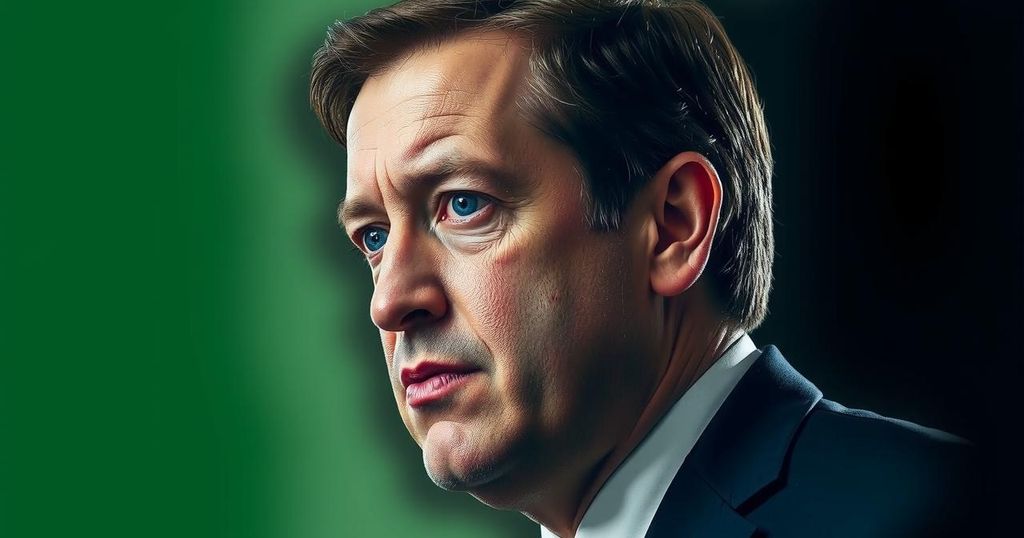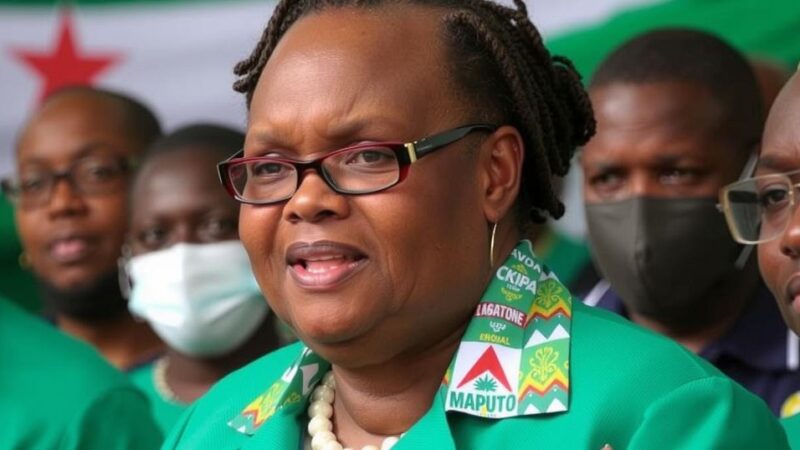Political tensions in Ireland have intensified following a negative encounter between Prime Minister Simon Harris and a voter. The incident, which went viral, may jeopardize Harris’s reputation as elections approach. Despite challenges, analysts predict the likelihood of the existing coalition of centrist parties remaining in power, while Sinn Féin’s resurgence presents an evolving electoral landscape.
In recent weeks, the political climate in Ireland, which seemed stable for the governing coalition, has encountered a significant challenge due to an incident involving Prime Minister Simon Harris. During an unanticipated encounter at a supermarket, Mr. Harris found himself in a terse exchange with a young woman, Charlotte Fallon, who criticized the government’s inadequacies in supporting workers with disabilities. The confrontation was captured on video and disseminated widely on social media, causing reputational damage that could impact Mr. Harris’s popularity leading into the upcoming elections. This incident has emerged as a focal point in an election otherwise dominated by the two center-right parties, Fine Gael and Fianna Fáil, who have ruled since 2020.
Despite the turmoil surrounding Mr. Harris, political analysts predict that the most plausible outcome for the elections is the continuation of a coalition government, potentially incorporating the Green Party or Labour to maintain parliamentary majority. Sinn Féin, primarily representing nationalist sentiments, has gained public support but remains unlikely to break the established coalition’s stronghold over government power. The election results will hinge largely on Mr. Harris’s ability to navigate this unexpected crisis while rallying voter support amidst rising criticism.
The Republic of Ireland’s political landscape has traditionally been characterized by the dominance of centrist parties, chiefly Fine Gael and Fianna Fáil, which have formed a coalition since 2020. However, in the context of ongoing national and global socioeconomic challenges, including public service shortages and socio-political issues, voter sentiment has been shifting. Recently, Sinn Féin, a party advocating for Irish nationalism and social justice, has gained momentum, though it still has not managed to secure a place in government. This political dynamic sets the stage for the significance of public perception, particularly surrounding pivotal figures like Prime Minister Simon Harris, who has recently faced scrutiny regarding his leadership and responsiveness to citizen concerns.
The future of Ireland’s governing coalition and Prime Minister Simon Harris rests on the upcoming elections. The encounter with a voter has raised questions about Mr. Harris’s ability to engage effectively with the public and address pressing social issues. With changing dynamics favoring opposition parties like Sinn Féin, the election results may determine whether traditional governance continues or if new leadership routes emerge. Observers will closely monitor the impacts of this incident on both Harris’s political standing and the broader electoral outcomes.
Original Source: www.nytimes.com







